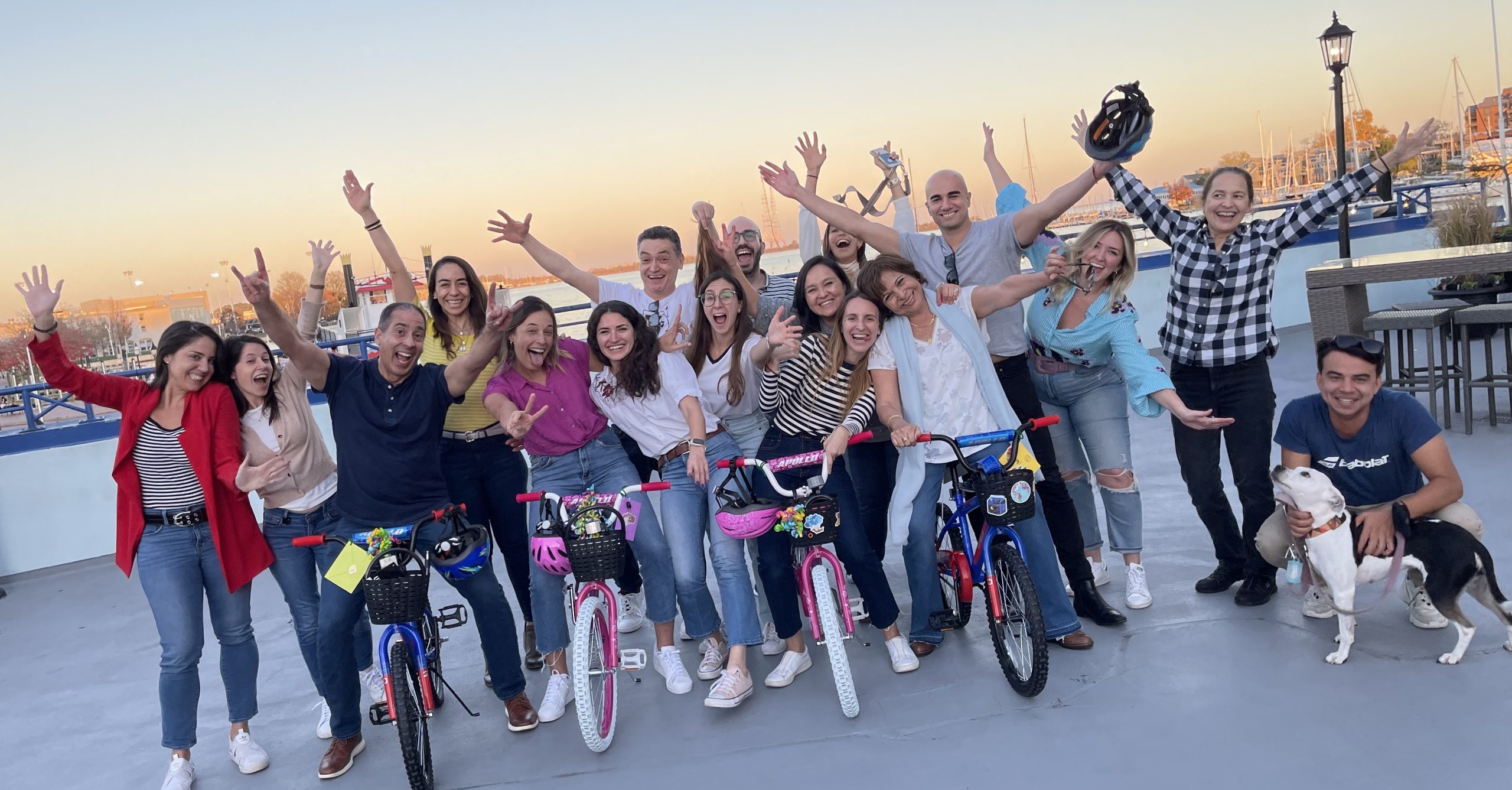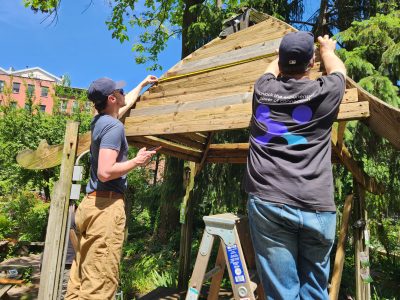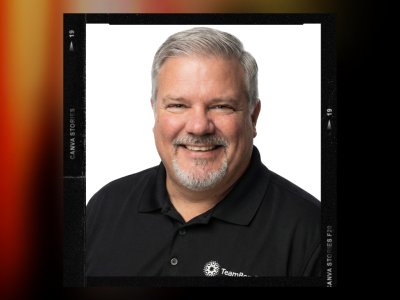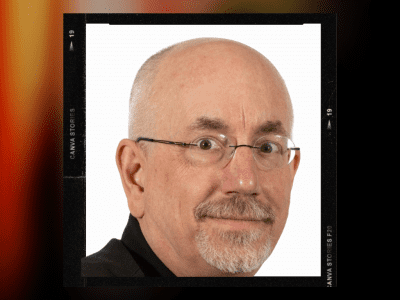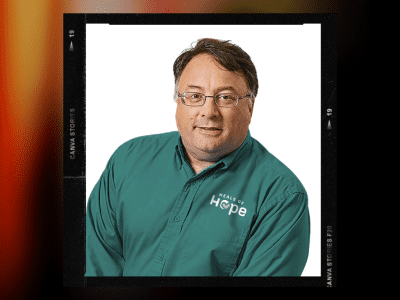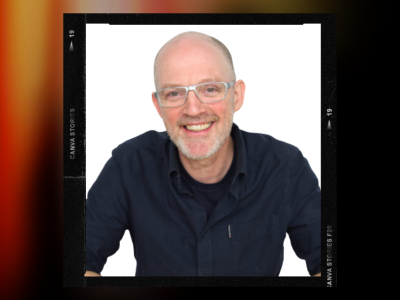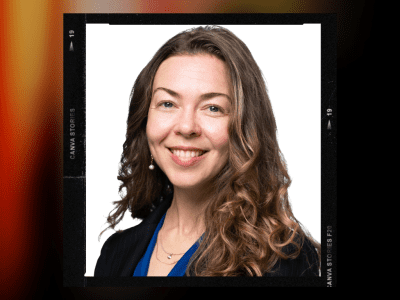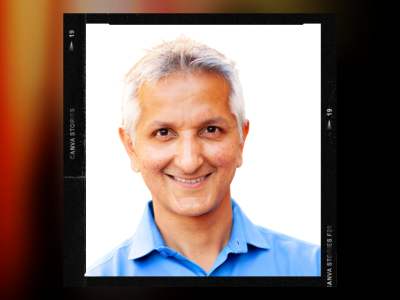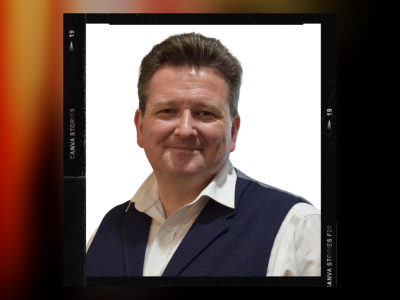STRONG TEAMS DON’T HAPPEN BY CHANCE 
Work-Life Integration
w/ Nancy Ho
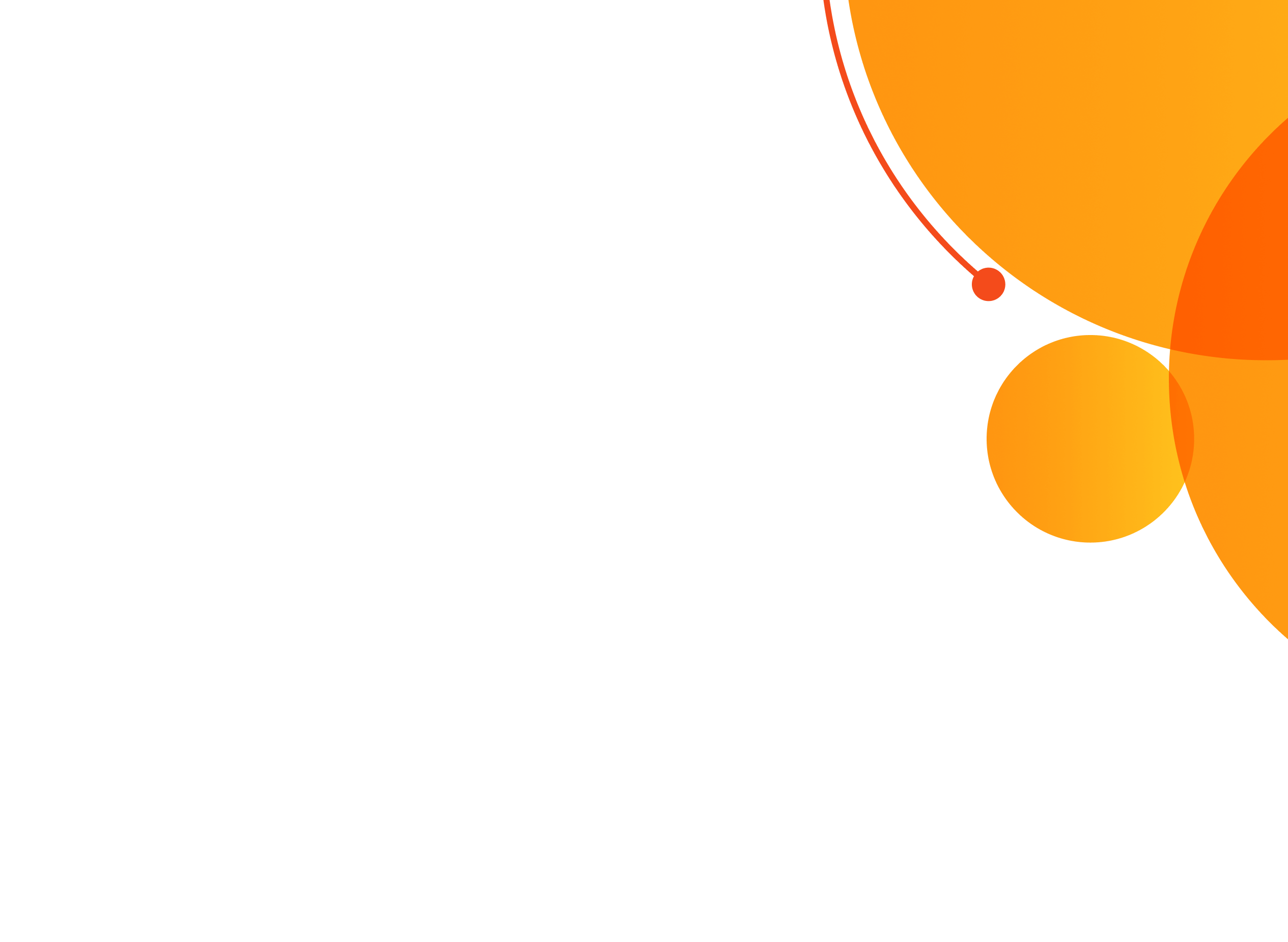
Use the buttons above to listen now.
Transcript - Work-Life Integration
Rich Rininsland: On this episode of Team Building Saves the World.
Nancy Ho: By the time we knew it all right, it’s like, mm, it’s all too late or,
Rich Rininsland: okay,
Nancy Ho: a bit too old, so they have it all. So you should be a very happy person. But this. Far from the truth.
I don’t believe in work life balance is work life integration.
Get a stock of roses and smell the roses and take away the bad smell.
Rich Rininsland: Hello team. It’s me, your old friend, Rich Rininsland, host of Team Building Saves The World and today, I want you to be honest with me, have you done everything you can to make yourself the success you want to be only to wake up in the morning feeling sick, knowing that something is still missing? That’s what we call the paradox of success, and in this episode, I have the honor of speaking with the internationally recognized thought leader on the paradox of success, Nancy Ho.
But first, I have to share some love with all of my supporters at TeamBonding. If your team is ready to experience teamwork through the power of play, then visit TeamBonding.com to learn more.
But now team, let’s dig a little deeper into what it means to be truly successful, not just for yourself, but for everyone around you with life and business strategist and the creator of the North Star Vision Framework, Nancy Ho. Nancy Ho, thank you so much for coming on to being part of the show. I appreciate you being here.
Nancy Ho: And my pleasure to be here tonight.
Rich Rininsland: So you are calling in from where?
Nancy Ho: Singapore.
Rich Rininsland: Singapore. Oh man. That’s on my bucket list. So if that’s a couch in your background, I might be crashing on it eventually, but, but let’s start out if we can just tell my team a little bit out there about yourself.
And how this focus in your life of, of teaching leaders to lead properly is where, you know, how did you come to that conclusion for how to live your lifestyle?
Nancy Ho: So, all right. As you mentioned, I’m Nancy Ho. I’m a life strategist, a transformative coach, and also an executive coach.
Yeah. The work that I do, I always call it, is natural.
It’s natural because as a teenager, believe it or not, I always already telling people how to live properly.
Rich Rininsland: I have one myself. I do understand.
Nancy Ho: Right? Somehow I don’t know where I got that. It’s just like I’m an active teenager at a time, of course. Like I want a live, right? I want to play, you know, I want games and songs, so to speak.
But at the same time, I also recognize that if we do not do well in our subjects, in our exams. When we have been in trouble. So translate that into this life as well. Right? If we don’t do well at work, we’ll be in trouble. But if it’s all just all work and no play. And it is not only just about play, but it’s also about there are different aspects of our life, if they are not well integrated.
I do not subscribe to this word: “balance”. Because when you go to balance, that means you go to get all areas like balance equal, equal, you know? And I don’t think that’s such a thing, but integrating them into one’s life. That is critical.
Rich Rininsland: Okay.
Nancy Ho: And more critical than ever. Which is really my main focus is how do you gap between that professional success and personal fulfillment.
Rich Rininsland: Hmm. Okay. And with this you have been recognized as the thought leader on the success paradox. Yes. Correct. What is the success paradox? Is it that inability to create both for yourself or is there something more to it?
Nancy Ho: Okay. Paradox. I call it like the opposite or the flip side of it. So we always hear about, okay, success and what it takes to be successful and all that. But at the same time, it’s not just about the price we have to pay. We all know that. But it’s more so neglecting, right? That that’s another aspect that may not be as positive. And it’s not necessarily negative.
But people overlook. So when you overlook those important aspects, then it becomes negative.
So I’m not referring to like, you know, to be successful, this is the price you have to pay. You’ve got to work like 16 hours a day, you got to just put your heart and soul and blah, blah, blah.
I’m not going there. I mean, to each their own how, how we spend our time, how effective we are at doing our work, and especially as a leader, right? The strategy that we use and how we going to go about guiding the teams. How to go about the strategy, I’ll call it at the end of the strategy is to each his own right?
No, I’m not talking, talking about that. So the success paradox is really areas that we overlooked, for example, being introspective, going inside, having that self-reflection because people get busy, busy, be busy, busy.
But they don’t spend time reflecting what they’re doing may or may not have a negative impact on some areas of our life.
And then another, another aspects of it at the expense of, at the expense of our health, at the expense of spending time with the family. So this success paradox that I’m looking at.
Rich Rininsland: I mean, my father, I’ve told people about this in the past episodes, but my father was the kind of person who believed he got up at 4:00 AM every day to get himself ready, have a nice breakfast, go do his job. He didn’t come back until six, sometimes seven o’clock at night, and when he did come back, it was: “I’m exhausted now. I don’t want to be with my four kids unless we’re just sitting and watching what I wanna watch on television.” And then I’m gonna go to bed and I’m gonna do the whole thing tomorrow morning.
Nancy Ho: Correct. Correct. And yes, he’s doing all this, you know, from a very positive intention.
Rich Rininsland: Right, right. Trying to be the success, trying to be the breadwinner, trying to make, you know, rise higher and higher up the corporate ladder.
Nancy Ho: Correct. Correct. So that’s what I mean by at the expense of, and somehow even the AI would not address that for you.
Rich Rininsland: Yeah, yeah. Very true. You’re not wrong.
Nancy Ho: Yeah, exactly. All right. AI can’t replace that.
Rich Rininsland: Yeah.
Nancy Ho: So the first thing we want needs is the introspection that what we are doing, is there any negative consequences?
Like I used the word at the expense of.
Rich Rininsland: Right. Yeah. Now. I understand that especially in the States, nowadays, we have people who are just coming into the marketplace. You know those Gen Alphas, Gen Zs, for whom this kind of thought process is already ingrained.
They’re already thinking about I have to keep myself healthy and I have to keep myself balanced while also doing my best job. But you still have those people out there for whom this is not even a thought that comes into their minds. You know, we have ulcers and bad backs and bad livers and so forth.
And they’re not understanding that the stress they’re putting themselves under is the cause of this effect. How do we teach them that they need to have a shift per of perspective?
Nancy Ho: Yeah, I actually have written this book, I co-written this book with Jack Canfield. And I love that when it’s called the title, the main title.
I mean, of course I’m not the only co-author. There are the co-author, but the main title is Success Redefined rather than another success book. I’m glad that I’m in there and I’m on chapter two. What I say is the paradox of success, the hidden struggles of high performing professionals. Because there are not much talk about, and there’s not right to even talk about it.
Rich Rininsland: How do we do it? How do we change their minds?
Nancy Ho: So this is what I call the silent weight of success. So I have this five, so-called five steps, not necessarily steps, but I would call it five steps framework as an expression.
So the first thing you know is introspection, as I mentioned early on, right? We have to look within the North Star. I use the North Star as a metaphor in the sense that there are this five areas that we need, and it’s need not want, to look at so that we ensure that what we do in the center, which is called our business or career, that can support all this arms.
Rich Rininsland: Ah, okay.
Nancy Ho: Yeah. So for example, one of the arm is family and friends, so what do you want from the family and friends, what kind of quality of family would you want? Just, hi dad. Buy dad.
Or you want the bonding, you know, you want that, you know, time because when kids grow up, they grow up, huh?
You don’t tell them to stay, stay, don’t go out. Also relationship with your wife or your husband and to be selective, like I said, we don’t want fair weather friends, I suppose. You know? So what kind of friends? So family and friends.
And then we have fitness and health. So then you have to support, I mean you, we can’t say we are going to be healthy when we do not have a fitness program going on.
Yeah, so that’s why clearly I said fitness and health. And the fitness is not just physical. You alsohave the mental, as we know now, the mental wellbeing is so important. Yeah. Then we have the wealth, all right. But rather, no, I don’t call it wealth, financial, and wealth. So financial is like, say annual financial wealth is what we built in time.
Then we have another arm that’s impact what kind of impact we want with people. Right? Whether you call it pay forward or people you know that your immediate whatsoever.
Then they have another arm that’s freedom and legacy. So all these five arms that put together are our career or our business, whatever needs to support.
For example let’s say health. Okay? Health the mental health. Like I want to be, I want to be composed. I want to be able to be grounded, calm. Mm-hmm. But then I take on a job as a air traffic controller.
Rich Rininsland: Yep. That, that is the antithesis of calm and collected.
Nancy Ho: Yeah. Truly. It doesn’t work.
It can’t work. And I don’t mean you have to immediately now, tomorrow go quit your job. But then maybe there’s some kind adjustment. Maybe look into the organization that what you could serve better at the same time also fulfilling what you want. So this is what I mean by introspection. So it’s not so simply like looking words, am I happy?
Am I unhappy? So it is deeper than that. Okay. The next aspect is that individual improvement. Often as a leader, we think we are good. Maybe very good. And we stop learning. We stop improving. We stop upgrading. We stop stepping up.
Rich Rininsland: Hmm. Okay.
Nancy Ho: It’s so clear.
It’s so clear. I mean, Singapore, I’ve seen people that, yeah, I mean, I’ve got a lot of C-suites and seniors comes to me and I look at them as just like, they look like they’re cruising along, but they don’t think so. They don’t think so. I’m not saying they’re crusing along as like they’re just doing a mediocre job.
I don’t mean that. I mean personal improvement.
Rich Rininsland: They get to a point where they think they can’t get any higher and everything is functioning in that same methodology, so let’s just keep doing the same thing over and over and over, over and over. And what, what kind of nourishment can we spiritually or mentally get from the same thing every day.
Nancy Ho: Exactly. And then I said, there’s no stand still.
Rich Rininsland: Yeah,
Nancy Ho: Either we grow or we decline, but we can’t see it without naked eyes. By the time we knew it all right, it’s all too late or, okay, a bit too old. And the third aspects is integrating your personal and professional life. As I said earlier on, I don’t believe in work life balance is work life integration.
Rich Rininsland: Good.
Nancy Ho: Yeah. Work life integration. There’s no balance. Especially after COVID, you know, we work from home and then now, you know some people work from home some days and in the office other days. And sometimes people get so blurred about this line.
That they take a call at 12 midnight, they take a call at 1:00 AM. Then they still have to do that stuff at 9:00 AM the next day. Sure. I don’t mean that you don’t take core at 12 minute, forget it. Stop at this time. I’m not gonna do, like you say, the Gen Z.
The attitude may be a bit like that. Right? I stop work at this time. That’s it.
Rich Rininsland: Right.
Nancy Ho: But no, we can’t because now is, everything is so global.
Rich Rininsland: And the markets are going 24 7.
Nancy Ho: Exactly. It is 8:00 PM plus my time now.
Rich Rininsland: But it’s 8:15 AM my time.
Nancy Ho: Yeah. I’m gonna tell you.
No, I’m not coming on. I’m not coming on to speak with you because it’s 8:15 PM.
Rich Rininsland: And if I was doing this nine to five, it would be nine o’clock at night for you.
Nancy Ho: Yeah. Yeah. So. That’s why I mean that, to know the integration, that’s important.
Rich Rininsland: Right.
Nancy Ho: And the integration also includes with your family,
We just need to be a bit more fluid, not flexible.
Flexible, tend to go whatever goes right, whatever happens, but being fluid and not too rigid about stuff. And then four, of course, interpersonal investment. Okay.
I don’t know. Richard, do you find that people are not so invested in knowing someone anymore?
Rich Rininsland: I do tend to agree with you there. Yeah. It’s very easy to come into a situation, especially as a facilitator, and I’m only there according to everybody else to do the job, and then I’m gone. And it is, it is always amazing to me when I come back to places that I’ve been to before, and I see people that were there maybe the last time, maybe the last two times, but they still don’t remember that I was even there.
Nancy Ho: Yeah. So even you think about the networking thing, right? People just go, I, I don’t know what they talk about, whatever they talk about is not exactly they’re interested in you.
Rich Rininsland: Right, exactly.
Nancy Ho: So that’s not interpersonal, you know, investment.
Rich Rininsland: By the way, for my team out there, I’m not saying you have to get to know me personally.
I understand, but you know, I don’t consider myself forgettable either.
Nancy Ho: This is the interpersonal investment. Of course. It’s not like everybody who meets you going to do that. That’s why the North Star, right? I go with like family and friends. So friends may not necessarily just be personal friends.
It can be also business associates. So what kind quality of that you want. So then I would be invested my time and interest, you know, in that just like I do group coaching as well, besides one-on-one, and I’m pretty invested in every one of them that comes to me. Okay. And we have a very strong relationship.
Not like the relationship that I’m gonna put my nose into everything that they do, you know, but it’s like we do care. And where is this care in the world these days?
And the fifth one is investing towards oneself. Investing within ourself. It’s not necessarily just knowledge but also wellbeing, spiritual, future, what’s to come.
So these are my five framework basically, that I look at, so that you have that integration in your life that you can gap between professional achievement and personal fulfillment.
Rich Rininsland: All of this sounds amazing and absolutely spot on, but how do people keep getting it wrong?
Because if they didn’t, they wouldn’t need a Nancy Ho. So how is it that everybody still lets the imbalance or the, the, you know, that non integrion happen?
Nancy Ho: I would say can I, can I say something like, they’re not aware.
Rich Rininsland: Okay.
Nancy Ho: They’re not even aware.
Rich Rininsland: Yeah, sure, sure.
Nancy Ho: Yeah. Hence why I want, that’s why I said position myself as the thought leader of the success paradox.
Because people are not even aware. So if they’re not aware, it’s just a long time ago. Right. People are not aware about hygiene, that was it a long time ago.
How do they kill the bad smell? They just perhaps, perhaps I was, have not lived in that early days as yet. Perhaps they may just get a stock of roses and smell the roses and take away the bad smell. I don’t know.
But I’m sure you get where I’m coming from, or the listeners get where I’m coming from. If you are not aware, under-wear. Or mindless about it, then how can you fix it? You don’t even know you have a problem until the problems surface and even the problems surface, you still can’t fix it because you don’t even know.
Like I have a lot of clients that come in. I have it all, but I feel bad.
Rich Rininsland: Mm-hmm.
Nancy Ho: I feel low waking up in the morning.
Rich Rininsland: Yeah.
Nancy Ho: All right. Feeling depressed. Let’s look at it. Right. Hollywood Star, some of them. I’m not saying all of them. I’m talking the A-lister, right? They have the power, they have the looks, they have the body.
They have the wealth. They have it all.
Rich Rininsland: Yep.
Nancy Ho: Why is it that they still, some of them, I’m not saying everyone could be heavy on drugs, overdose, heavy on alcohol.
Rich Rininsland: Mm-hmm.
Nancy Ho: And sadly, some even take their life.
This is true story, right? It’s not being morbid or negative. We all know that.
Rich Rininsland: It happens everywhere. Yeah.
Nancy Ho: Happens everywhere. Exactly. So they have it all. You should be a very happy person. It is far from the truth. Far from the truth. So because they’re unaware, so, and just feel bad. And then of course in this world, I feel bad, I just go to a doctor, perhaps, and I get antidepressant, pop the pill.
Pill popping culture, right? Like, oh, I feel better already.
You know. You don’t. It is just the chemical in your body, that’s not a fixed, yeah. So our answer to that, to the unaware.
Rich Rininsland: So how do we, how do we set an early enough alarm for ourselves that we can recognize we’re getting there before it becomes tragic.
Nancy Ho: Because one has to be truthful to themself. What is really important
Rich Rininsland: Okay.
Nancy Ho: Is just chasing after that next promotion, the big increment. Oh, I just had someone seeing him tomorrow. He make to a equity partner in this big whatever firm. I don’t wanna mention name.
He actually, he said, “oh, great news. Finally I got it.” Yeah, because he was like waiting for it for a while, then you are working towards it and all that. He finally got it and he actually said, “hi, Nancy, I hope you’re well. Just wanna let you know that I’ve just received confirmation of his equity partner. Thank you for all your help in getting me there. Oddly though. I don’t feel very happy about it.”
Rich Rininsland: Ah, there you go. Everything he’s been working for, now that he has it. There’s no joy.
Nancy Ho: He says, “yeah, thank you for your help in getting me there.”
He should be like, “yay, let’s party. Let’s go celebrate”. But he says, “oddly though, I don’t feel very happy about it.”
Scary, right?
Rich Rininsland: Yeah. Yep. Hmm.
Nancy Ho: Crazy
Rich Rininsland: What do you, I don’t know what your strategy is, and I don’t want you to give away the store here, but I mean, what can you do for people like that?
Nancy Ho: Then I have to get to the root cause?
I gotta get into root cause. What is it unhappy about? It’s not a superficial thing that I just discussed with him and blah, blah, blah. So we worked so hard and he wanted so much. And in fact, he was contemplating resignation at the time because he thought he’s not gonna get it.
He says, no, if I’m not getting, I’m out of here.
Rich Rininsland: Sure, sure. Yeah. If I’m not gonna get it here, I’ll go find somewhere else I can get it.
Nancy Ho: Right. And now he, and he is unhappy, he’s not happy.
So I have to get to the root cause. What is it that he’s feeling? I do very deep work.
It is not just, you know, I don’t do counseling thing that’s counsel this. I mean, he’ not there. What is there for me to counsel him, you know, but really get to the root cause? What makes him feel that way? Okay. And you gotta come from somewhere.
Rich Rininsland: So, again, I hope things turn around better for that gentleman, but I do want to take a second and change focus a little bit to talk about the teams of people who are under them.
Nancy Ho: Mm-hmm.
Rich Rininsland: What does this success paradox do to, we know what it does to the people we’ve just discussed, what it does to the people who are in it.
But what does it do to all of those people who are under that person?
Nancy Ho: I call it ripper effect.
Rich Rininsland: Yeah.
Nancy Ho: Huge ripper effect. Whether it is the people under you or who works with you, and the ripper effect, also your family.
Rich Rininsland: Right. Right. Yeah.
Nancy Ho: So long, you know, we are not a hermit. We don’t live in our own island and we are separated. No.
Rich Rininsland: Oh, I wish I could. There are days.
Nancy Ho: Exactly. Energetically, we are all, we affect each other. I mean, just that weather affects us. Right. I mean, okay. Singapore is great. It is usually rain or sun.
Rich Rininsland: Yeah.
Nancy Ho: Rain, sun. But even, even rain sun… there are months that rained daily. And it’s miserable. It’s so wet. I remember that day is like, I went to sleep with the rain and I wake up with the rain. I went to sleep with the rain. I wake up rain for like, you know, say five days and it happened five days to a week.
And then of course you don’t feel good. It’s like, oh, everything’s so damn and wet and you know? It doesn’t feel good. So more so now the interaction with people.
Right. Walk to your office, you have this energy, right. It comes true from your speech.
Rich Rininsland: Right?
Nancy Ho: Right. It comes true looking at somebody.
Right. It comes true and all this, you can’t fake.
You absolutely cannot fake. It’s there, doesn’t it? That’s why we say we are also contagious, right?
Whether we know it, we don’t know it. We are all contagious, and particularly younger children picks it up very fast. The energy.
Rich Rininsland: So, what do we do? I mean this is, this is an everyday problem. How do we keep our mood. Everyone always has the, you know, put on a happy face. You just gotta show them what you want them to see, even though you know what’s happening inside of you. But how do we, there’s still that mental health component of now I’m lying to everybody about who I actually am.
Nancy Ho: Before the how. Let’s go with why.
Rich Rininsland: Okay.
Nancy Ho: Why do you do what you do?
Rich Rininsland: Okay.
Nancy Ho: If you don’t have that clarity, forget about all the how, because we won’t even… example, why do I want to be healthy if I don’t have the why? We all know the how. We just not doing it.
Every single person knows how to lose weight. Right. We don’t even need, you know, some expert to come and tell us. We all knew, right? But are we doing it? So those people do it because they have the why.
Rich Rininsland: Right.
Nancy Ho: I exercise five times a week. And so people said ” oh God, Nancy, you’re so disciplined, or You’re such a health freak.”
I said, “far from it, I’m not, but I have the why.” So therefore it becomes an auto thing that I wake up in the morning, I have my own home gym, right? I wake up in the morning and that’s the thing to do. Not because I’m so disciplined, I have to do it. I must do it. No. It’s just like our personal hygiene.
We don’t need anybody to prompt us to go and do our personal hygiene, it’s the same thing. Right? Why? Okay, so the why is to come first. So I’m saying here now everyone that question your why and be clear about your why. Okay? Only when you are clear about your why, the how will come, whether or not you have Nancy Ho.
Rich Rininsland: But let’s look at that rain you’re talking about too, because I mean, that’s why are people upset that it’s raining? The world needs rain. Everybody, you know, the earth needs it. We need the earth to live so clearly we shouldn’t be that upset about it.
Nancy Ho: If you look at Four Seasons, okay, countries of Four Seasons, example, winter is really bad, isn’t it?
So-called bad because all the plants die, all the trees, all the leaves are gone.
Rich Rininsland: It’s dark earlier and longer.
Nancy Ho: But then come winter where everything gone, so called gone. But come spring, everybody, everything comes alive, right? So there this certain natural, evolution that happened.
Rich Rininsland: Yeah.
Nancy Ho: But when it comes to like the purpose of our leading, the purpose of leading your team has to come from why and the why isn’t about making money.
In fact, the making money thing is a byproduct. One doesn’t even need to think about it. Not free lunch in this world, we all know that.
Rich Rininsland: Yeah.
Nancy Ho: So if you have your why and you have your purpose, then you will carry the meaning and the how comes quite naturally. And also the person will have the capacity to even look for better how?
Rich Rininsland: Mm-hmm.
Nancy Ho: More effective how. But if I’m not in that mood, forget about the how.
Rich Rininsland: I guess we also have to be okay to show up at work someday and say to people, I’m not there today. I’ll be there again. I’m gonna try to be there again tomorrow, today I gotta figure out my why. I’m just not here today. And a lot of companies don’t have that freedom. They don’t have that safety that everybody really needs.
To be able to say, I’m gonna do my job today. My job will be done. It’s not gonna be the greatest, and I’m gonna give you bare minimum, but I will be here doing it. Is that part of your teaching with these leaders to let them know that psychological safety network has to be in play.
Nancy Ho: I’ll frame it another way. We do not need to be perfect.
Rich Rininsland: I mean, yeah. How do we get past the perfect?
Nancy Ho: That this is a mindset thing. Teenagers… I just had somebody’s son and doing his A levels in two weeks time, and I told him, forget about getting every question right.
You don’t need to. Because you wanna get every question right. You will freak out.
Rich Rininsland: Right, right.
Nancy Ho: You just need to get mostly right.
Now think about that, that lifts that burden almost immediately, isn’t it?
You just need to get mostly right.
Rich Rininsland: Yeah. Yeah.
Nancy Ho: We don’t need to be perfect. We just need to step up and excel as much as we can. Done. So some days are better than the others, but the attitude also don’t be the best.
Strange, I’m saying this, don’t be the best. Because best is silly. I’m the best.
Rich Rininsland: Yeah, yeah, yeah, yeah. There’s nothing beyond that then. And everybody’s gonna be coming after you, as it were. ’cause they want that spot too.
Nancy Ho: Yeah. And not only diet, right? You think that you’re the best and then what happened?
Like I said, there’s no such thing as stands still. Either you grow or you decline.
Rich Rininsland: Right.
Nancy Ho: Right.
Rich Rininsland: Yeah.
Nancy Ho: Say for example Olympic game gold medalist right after one gold and two golds and whatever are they gonna go for ? what is above gold?
Rich Rininsland: Right, right.
Nancy Ho: So unfortunately, a lot of them really then so-called retire and they grow fat. They stop doing anything to even keep themselves fit, let alone, you know, pursuing something. Of course some of them do. It is great, but many we know, they just throw the towel in and that’s it. I’ve done my bit. Yeah, so it’s always like, you know, I said don’t be the best, but seek excellence.
Rich Rininsland: Good. Yes, yes, yes. Excellent. Excellent. I like that. I like that a lot. Nancy Ho. I could go on and on with this, Nancy. We could just be talking forever. Thank you so much for coming on with us again today.
Nancy Ho: Thank you.
Rich Rininsland: My team out there, good big round of applause for Nancy Ho everybody.
Nancy Ho: Thank you.
Rich Rininsland: That’s just a small group of people. I keep chained up under my desk just to applaud people. That’s all they’re there for. Nancy, is there any button we can put on this? That will make those people who have hit the success paradox to realize that there is a better way forward.
A more balanced, well, not a balanced. How did you put more integrated way forward for them that they can start doing for themselves right now, with the exception of calling Nancy Ho.
Nancy Ho: Okay. I understand. I get that bluntly, be brutally honest with oneself.
Rich Rininsland: Okay.
Nancy Ho: Bluntly, really bluntly, be brutally honest with oneself.
And that is so critical because if you cannot be honest with yourself, then what? So we just be brutally honest with oneself. We will know what are the gaps, what we need to do, whether we need to, you know, amend something, correct something. Seek help ,discuss something with someone, change something, you know, to each his own.
And I believe as leaders, we are good enough to know what’s called strategy even without any external help, you know, at all. In fact, even when people come to me, I can’t give them the answer. I don’t live their life.
Rich Rininsland: Yep.
Nancy Ho: Yeah. I’m their sound boat.
Yes. As I said earlier, I get to the root cause, but at the end of the day, it is their own realization.
I can’t realize for them.
Rich Rininsland: Mm.
Nancy Ho: Yeah, that’s what it is. Of course, some people can do DIY and others may need some help, but basically that.
Rich Rininsland: Very good. Very, very good. Nancy. This was charming and wonderful. Thank you so much. Did you have a good time? Did you enjoy yourself?
Nancy Ho: Oh yes, absolutely. Thank you, Richard.
Rich Rininsland: I’m glad you did. Because that might change it’s time for my speed round. So, Nancy, just to remind you what this is, I’m gonna play some music for 60 seconds. That’s just gonna keep me in track of the time and I’m gonna ask you a series of questions.
This is just a way for us to get to know you personally a little bit better. But if you’re feeling at all challenged. We have gotten to 17 questions asked within 60 seconds .
Nancy Ho: There’s a lot of questions.
Rich Rininsland: Remember, don’t aim for perfect. You just have to be the best you.
Alright. As soon as you hear music, I’m gonna ask the first question. Are you ready?
Nancy Ho: Yes.
Rich Rininsland: Let’s make this fun. What’s your name?
Nancy Ho: Nancy.
Rich Rininsland: Do you have any kids?
Nancy Ho: No.
Rich Rininsland: Do you have any pets?
Nancy Ho: No.
Rich Rininsland: Okay. If you could be any fictional character, who would you be?
Nancy Ho: I would like to be Robin Hood.
Rich Rininsland: What’s the most adventurous thing you’ve ever eaten?
Nancy Ho: Snake
Rich Rininsland: What’s your favorite thing about your grandparents?
Nancy Ho: Empathy, kindness.
Rich Rininsland: Who’s the funniest person, you know?
Nancy Ho: Funniest person? Robin Williams.
Rich Rininsland: Okay. Your favorite vacation spot?
Nancy Ho: I’m a staycation person.
Rich Rininsland: What was your first job?
Nancy Ho: As image consultant.
Rich Rininsland: Favorite concert experience.
Nancy Ho: Oh, comedy is like, you know, comedy stuff.
Rich Rininsland: What’s the best advice you’ve ever been given?
Nancy Ho: Be truthful to oneself.
Rich Rininsland: And how do you stay creative?
Nancy Ho: Always doing something different. Always curious.
Rich Rininsland: 12. You got 12 my friend. That was actually really good. Be proud. That was good.
Nancy, once again, thank you.
Thank you so much for coming on. This is wonderful. Thank you.
Nancy Ho: Right, my honor. Thank you very much, Richard.
November 12, 2025
In this episode, host Rich talks with Nancy Ho, a life strategist and executive coach, about the real key to personal fulfillment in your job—achieving true work-life integration. Nancy shares how leaders can move beyond the outdated idea of “work-life balance” and instead create harmony between their professional success and personal well-being.
Through her “Five Steps Framework,” Nancy breaks down what work-life integration looks like in practice, exploring how introspection, self-improvement, and intentional living can help leaders find lasting satisfaction. She explains that personal fulfillment isn’t about separating work from life, but about aligning your values, goals, and actions across both.
Together, Nancy and Rich discuss the “success paradox”—why so many high achievers still feel unfulfilled—and how self-awareness, purpose, and connection can restore meaning at work and beyond. This episode reveals how redefining success and embracing work-life integration can help leaders thrive professionally and personally, creating a life of impact, freedom, and fulfillment.
About Nancy Ho
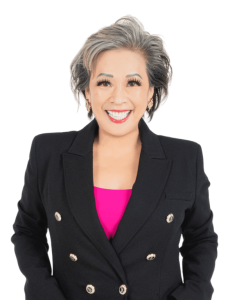 Nancy Ho is a Life & Business Strategist, Transformative Coach, and internationally recognized thought leader on The Paradox of Success. With over 26 years of experience coaching more than 10,000 high-achieving professionals—including executives and senior leaders—Nancy specializes in helping people break through burnout and align their personal purpose with professional performance.
Nancy Ho is a Life & Business Strategist, Transformative Coach, and internationally recognized thought leader on The Paradox of Success. With over 26 years of experience coaching more than 10,000 high-achieving professionals—including executives and senior leaders—Nancy specializes in helping people break through burnout and align their personal purpose with professional performance.
She is the creator of the North Star Vision™ framework and a sought-after speaker on leadership fulfillment, culture transformation, and emotionally intelligent workplaces. Recently featured in LA Weekly and Arab Business, Nancy brings deep, practical insight rooted in authenticity, strategy, and empathy.
Personal fulfillment isn’t about separating work from life; it’s about aligning your values, goals, and actions across both.
Nancy Ho
More great podcast episodes.
Season 6 | Episode 18
That’s a Wrap!
Season 6 | Episode 16
Laughing it Off
Season 6 | Episode 15
Corporate Volunteerism in Action
Season 6 | Episode 14
Collaborative Play at Work
Season 6 | Episode 13
The Science of Supportive Workplaces
Season 6 | Episode 12
The Power of Being Present
Season 6 | Episode 11
The Age Advantage
Season 6 | Episode 10
VUCA-Proof Your Leadership
